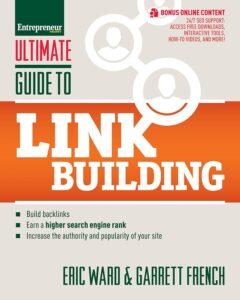Are you looking to expand your online presence and establish yourself as an authority in your field? Guest posting might just be the answer! But here’s the challenge: to find guest posting sites can feel like searching for a needle in a haystack. How do you find sites that actually want guest posts, and more importantly, that align with your audience?
Guest posting has long been a powerful tool for improving SEO, building credibility, and reaching a wider audience. But as it becomes more popular, finding quality opportunities can be tricky. Let’s dive into the nuts and bolts of guest posting, the strategies to locate these sites, and why it’s worth the effort.
—————-Recommendations, Please continue reading below—————- 
Highly rated daily-life products at low prices Shop Now
From bedding to office furniture and supplies, from kitchen accessories to health & fitness, from storage to travel bags, the amazon basics provides hundreds of daily use products at amazingly low prices with having highly rated consumers feedback. Click here to learn more >>>
Write for Us and Join Our Innovative Blogging Community
What Is Guest Posting and Why Is It Important?
Guest posting is essentially writing content for another website. In exchange, you often get a byline or backlink to your site, which helps to boost both your reputation and your SEO ranking. But it’s not just about links—guest posting helps you connect with new readers, showcase your expertise, and build professional relationships.
Why does it matter so much? In the crowded digital space, guest posts are a reliable way to get noticed without relying solely on social media algorithms or paid ads. They bring you organic traffic from audiences genuinely interested in what you offer. By appearing on reputable sites, you also build authority, which is crucial for SEO and Google rankings.
The web today is comprised of trillions of links: links between websites, links within social media venues like Facebook and Twitter, and even links in email inboxes. Who links to a site and how they link to it is one of the most important factors that search engines rely on when ranking results. But how do marketers control this? Link building expert Eric Ward provides the answers.
Sharing little-known techniques for link building via social media platforms, blogs, partnerships, public relations, articles, and more, Ward teaches marketers which link-building techniques will maximize the quality links that point to their site, allowing them to charm both search engines and customers and which methods to avoid.
This one-of-a-kind guide details a variety of link building tools, tactics, and techniques illustrated by case studies, expert interviews, and resources. Ward leaves no opportunity unexplored, and no link-building questions unanswered.
Top 5 Methods on How to Find Guest Posting Sites
If you’re new to guest posting, knowing where to start can be overwhelming. Here are five proven methods to find guest posting sites that welcome contributions and align with your niche.
1. Use Google Search Operators
Google is your friend when it comes to locating guest posting opportunities. By using specific search terms, called operators, you can narrow down your results to sites that accept guest posts. Here are a few operators to try:
- [Your Niche] + “write for us”
- [Your Niche] + “guest post guidelines”
- [Your Niche] + “become a contributor”
For example, if you’re in the tech field, you could search for “tech blog + write for us” or “technology blog + guest post guidelines.” These targeted searches can save you time and bring up sites actively looking for guest contributions.
2. Look for Guest Posting Directories
While guest post directories aren’t as common as they once were, they still exist and can be a goldmine for finding guest posting sites. Directories often categorize sites by niche, making it easier to locate those relevant to your expertise.
Some directories are paid, while others are free, so check out both and see which ones might work for you. A few popular directories to consider include:
- GuestPost.com
- AllTop (which lists top blogs by category)
Using a directory lets you skip the trial and error of cold outreach, as these sites are usually open to submissions and easy to contact.
3. Research Prolific Guest Bloggers
Look up industry leaders or bloggers known for their guest posts. By tracking where these writers publish, you can discover sites that may also be open to your content. To do this, start by searching for a well-known figure in your niche, followed by “guest posts” or “articles by [Name].”
Analyzing their profiles on LinkedIn or Twitter can also give you insights into where they’ve been published. This not only reveals potential sites but helps you understand what kind of content resonates with your target audience.
4. Check Your Competitor’s Backlink Profile
If competitors are landing guest posts, they’re likely targeting the same audience you want. By using backlink analysis tools like Ahrefs, Moz, or SEMrush, you can uncover where your competitors are getting backlinks from guest posts. Once you have a list of sites linking back to them, you can approach these sites with your own pitch.
This method is highly effective because it provides a list of sites that have already accepted guest posts in your niche, making them more likely to consider your submission.
5. Search on Social Media
Social media platforms can also be a useful resource, especially for niche-specific guest posting opportunities. Twitter and LinkedIn, in particular, are great for connecting with editors and site owners. You can search for terms like “guest post” or “write for us” within LinkedIn or Twitter to find recent posts about guest posting opportunities.
Joining relevant Facebook groups and LinkedIn communities can also lead to guest post invitations. Members often share opportunities within these groups, making it easy to find sites you might not discover through search engines alone.
Discover High-Authority Guest Posting Sites Effortlessly
Let’s say you’ve used one of the methods above and identified a list of potential sites. How do you choose the right ones? Here are some factors to keep in mind:
- Domain Authority – Sites with a higher domain authority (DA) will provide more SEO value. Aim for sites with a DA of 30 or higher.
- Audience Relevance – The site’s audience should overlap with your target audience to ensure your content resonates.
- Content Quality – Look at other guest posts on the site. Does the site prioritize quality content, or are the posts short and promotional? High-quality sites attract a better audience.
- Engagement Levels – Do readers engage with the site’s content through comments or shares? Engagement levels indicate an active, interested audience.
High-authority sites don’t just boost SEO; they establish you as a reputable source of information in your field. Targeting these sites may require a bit more effort, but the rewards in reach and credibility are worth it.
Why Choosing the Right Guest Posting Sites Matters
Choosing the right guest posting sites is more than just finding a place to publish. It’s about aligning your content with audiences who will genuinely benefit from it. Selecting relevant, high-quality sites increases the chance of your content gaining traction, driving traffic back to your own site, and building authority over time.
By using these strategies, you’re setting yourself up for guest posting success that goes beyond mere link-building. With the right sites, guest posting can open doors to new opportunities, collaborations, and an audience eager to engage with your content. Now, go ahead and start searching for those guest post opportunities—you’re well-equipped to make an impact!
This approach to finding guest posting sites isn’t just a strategy; it’s a pathway to building real connections and authority in your field. So, are you ready to reach new heights with guest posting?
Now loading...







